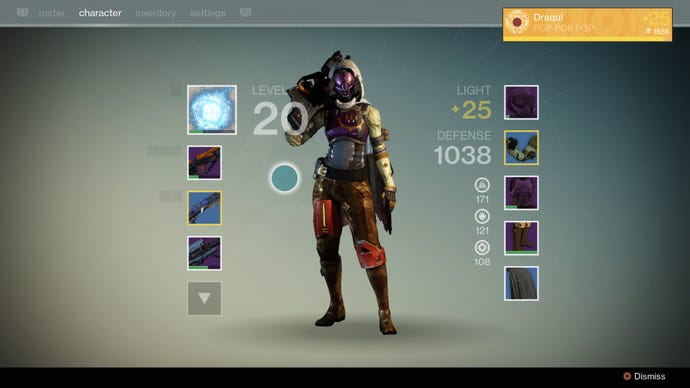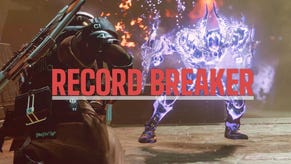Destiny guide: statistics explanation
Destiny players must weigh up the various benefits of intellect, discipline and strength, not to mention weapon attributes like impact and attack. We break down these baffling statistics.
Destiny guide: statistics explanation
Some of Destiny's statistics and attributes make immediate sense, while others are frankly mysterious. You'll need to explore a number of menus to even see all of these details, but it's definitely worthwhile knowing what they all mean; working out synergies between your attributes, subclass perks and equipment benefits is the key to creating a successful build. Grenade spam, anyone?
Character statistics
- Level
A rough guide to your character's progression and readiness to tackle challenges. Up to level 20, your level is determined by total XP earned. After level 20, the quality of your gear is what matters. Every level gained increases your basic damage output and survivability. See our complete Destiny levelling guide for more details. - Defense
How resistant your character is to damage. The higher this number is, the less each shot that hits you will chip away at your health bar. This figure is determined by the quality of your armour. - Armor
This figure changes based on your Subclass perk choices, and affects how long your health bar is. Its onscreen size doesn't change but trust me, the longer this bar is when you check it out on your Subclass screen, the more HP you have. - Recovery
This figure changes based on your Subclass perk choices, and affects how quickly you regenerate health and shields after taking damage. - Agility
This figure changes based on your Subclass perk choices, and affects your movement speed and jump height. - Intellect
How quickly your Super regenerates. You can increase this figure via armour with the appropriate statistical boosts. Barring other factors, a 100% bonus halves the time taken to generate a full super bar. - Discipline
How quickly your grenade regenerates. You can increase this figure via armour with the appropriate statistical boosts. Barring other factors, a 100% bonus halves the time taken to generate a grenade. - Stength
How quickly your Melee regenerates. You can increase this figure via armour with the appropriate statistical boosts. Barring other factors, a 100% bonus halves the time taken to generate a Melee attack.
Weapon Statistics
- Attack
The first and most important weapon stat: how much damage is it capable of? This figure is derived from other values and is a rough DPS guide. Note that how much damage you do to enemies of a lower level than yourself is capped - otherwise max level players might be able to one shot bosses. - Rate of Fire
Pretty self-explanatory; how quickly bullets come out when you pull the trigger. Some non-automatic weapons can have quite high rates of fire, but you'll need to feather the trigger. Note that some weapon upgrades can increase this statistic. - Impact
How hard a bullet hits. This is the real measure of damage per shot, and along with your Level and the weapon's Rate of Fire, is used to calculate the Attack stat and damage dealt. Impact between weapon kinds are not comparable, so don't freak out that your pulse rifle doesn't hit as hard as your hand cannon; it may still be the better weapon. - Range
The higher this number is, the more effective a weapon is at a distance. Try to snipe with a pulse rifle and you'll see the damage drops off much more rapidly over distance than a scout rifle, for example. - Stability
The more of this you have, the less recoil you'll get between shots. If you're using an auto or pulse rifle, this makes it much easier to stay on target. - Reload
How quickly you can reload your weapon. You may have weapon, subclass and equipment perks that increase this value. - Magazine
How much ammo you can burn through before you need to pause to reload.








.jpg?width=291&height=164&fit=crop&quality=80&format=jpg&auto=webp)



